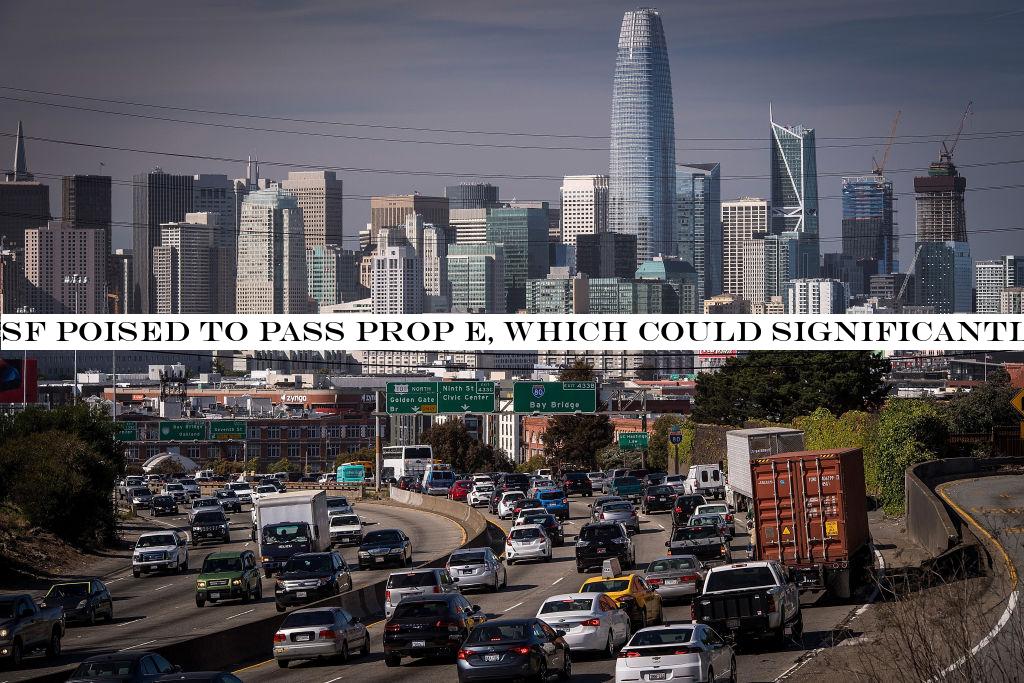Music
Trailers
DailyVideos
India
Pakistan
Afghanistan
Bangladesh
Srilanka
Nepal
Thailand
StockMarket
Business
Technology
Startup
Trending Videos
Coupons
Football
Search
Download App in Playstore
Download App
Best Collections
Technology

This IT tech pilot fish works in a factory that makes loudspeakers, and one day an engineer comes running over, frantic because his laptop had stopped working while he was in the warehouse testing an application.
So fish follows him to the warehouse and the pallet he had set his laptop on.
A pallet of boxes full of heavy-duty magnets that were labeled with warnings about intense magnetic fields.
Sharky wants to attractyour true tales of IT life. Send them to me at This email address is being protected from spambots. You need JavaScript enabled to view it.. You can also subscribe to the Daily Shark Newsletter.
To read this article in full, please click here
- Details
- Category: Technology Today
Read more: Wayback Wednesday: Drawn to it
Write comment (91 Comments)Last July, Hawaii representative and longshot Democratic presidential hopeful Tulsi Gabbard filed a lawsuit against Google, accusing the company of violating her First Amendment rights to free speech when it briefly suspended her campaignad account. On Wednesday, CaliforniaCentral District Court rejected the suit outright.
Gabbardcampaign, Tulsi Now, Inc., asked for $50 million in damages from Google for &serious and continuing violations of Tulsiright to free speech.& In the suit, her campaign claimed that Google &helps to run elections& through political advertising and search results — an argument District Judge Stephen Wilson firmly rejected.
In dismissing the case, Wilson writes that what Gabbard &fails to establish is how Googleregulation of its own platform is in any way equivalent to a governmental regulation of an election.& When it comes to Google, &an undisputedly private company,& the First Amendmentfree speech protections do not apply. A week ago, another California court reached the same conclusion in a case that right-wing group PragerU brought against YouTube.
In a case of poor timing, Gabbardaccount was suspended for an interval of time following the first presidential debate as viewers sought information about the unfamiliar candidate. In the lawsuit, Gabbard noted that Google took her advertising account offline &in the thick of the critical post-debate period.&
&Since at least June 2019, Google has used its control over online political speech to silence Tulsi Gabbard, a candidate millions of Americans want to hear from,& the suit stated.
Echoing unfounded conservative complaints of tech censorship, Gabbard characterized paid political advertising as free speech, language that Facebook itself would later adopt in defending its lax position on policing political ads.
&This is a threat to free speech, fair elections, and to our democracy, and I intend to fight back on behalf of all Americans,& Gabbard said in a statement at the time.
Gabbard also decried Googledominance of the search business, echoing the anti-monopolist tech sentiments expressed by other Democratic candidates. Political figures in both parties have seized on anti-tech sentiment in recent years, and the Hawaii representativelawsuit is just one example of politically expedient posturing against major tech platforms.
After the incident, a Google representative explained that the platform automatically flagged Gabbardaccount for unusual activity, a mistake it corrected a short time later.
- Details
- Category: Technology Today
Read more: Judge rejects Tulsi Gabbard’s ‘free speech’ lawsuit against Google
Write comment (98 Comments)
I'm not gonna lie: This time of year is usually a bit of downer here in the land o' Android analysis.
I've been tracking device-makers' speed at sending out Android operating system updates to their devices for quite a while now, y'see — since somewhere around the early 1800s. And with rare exception, the results are pretty much always bad news.
Calling it "bad news" is probably being generous: With almost every year in recent memory, we've seen upgrade delivery performance from most of the big Android device-makers get progressively worse, despite Google's ongoing efforts to make the process easier. Last year was a slight exception, with a couple of moderate improvements, but it was still a ridiculously depressing picture all in all — with only two non-failing grades in a sea of cold indifference.
To read this article in full, please click here
- Details
- Category: Technology Today
Read more: Android 10 Upgrade Report Card: Progress is relative
Write comment (94 Comments)
Boosted, the startup behind the Boosted Boards and, more recently, the Boosted Rev electric scooter, has laid off &a significant portion& of its team, the company announced today. The company is now actively seeking a buyer.
Boosted attributes the layoffs to the costs of developing, producing and maintaining electric vehicles and the &unplanned challenge with the high expense of the US-China tariff war,& Boosted CEO Jeff Russakow and CTO John Ulmen wrote in a blog post.
&The Boosted brand will continue to pursue strategic options under new ownership,& they wrote.
Boosted, which got its start back in 2012, made its first foray outside of electric skateboards last year with the launch of an electric scooter. Boosted says more than 100,000 riders have traveled tens of millions of miles on the companyvehicles.
&We are extremely proud of what our company has accomplished, and gratified to see so many happy customers riding their Boosted vehicles every day,& Russakow and Ulmen wrote.
This perhaps should not come as a surprise. For starters, micromobility is a hard business — one that no company can confidently say it has cracked. Meanwhile, The Verge reported earlier this month that the company was at risk of running out of money. On top of that, Boosted reportedly struggled to pay its vendors for the electric scooter.
&To Boostedcustomers and community, we&d like to thank you for your passionate support and encouragement over the last nine years,& Ulmen and Russakow wrote. &Itbeen the thrill of our lives to spend time with you and help shape the future of mobility together. To the Boosted team, you made this company a special place, created multiple generations of incredibly innovative products, and created a compelling global brand; thank you so much for your hard work and dedication over the years.&
- Details
- Category: Technology Today
Read more: Boosted lays off ‘a significant portion’ of team as it looks for a buyer
Write comment (93 Comments)
Anthony Levandowski, the engineer and autonomous vehicle startup founder who was at the center of a trade secrets lawsuit between Uber and Waymo, has been ordered to pay $179 million to end a contract dispute over his departure from Google.
Reuters was the first to report the court order.
An arbitration panel ruled in December that Levandowski and Lior Ron had engaged in unfair competition and breached their contract with Google when they left the company to start a rival autonomous vehicle company focused on trucking, called Otto. Uber acquired Otto in 2017. A San Francisco County court confirmed Wednesday the paneldecision.
Ron settled last month with Google for $9.7 million. However, Levandowski, had disputed the ruling. The San Francisco County Superior Court denied his petition today, granting Googlepetition to hold Levandowski to the arbitration agreement under which he was liable.
Levandowski himself may not have to pay the money personally, as this sort of liability may fall to his employer depending on his contract or other legal quirks. However, Levandowski personally filed today for Chapter 11 bankruptcy, stating that the presumptive $179M debt quite exceeds his assets, which he estimates at somewhere between $50M and $100M.
A representative for Levandowski declined comment for this story.
Devin Coldewey contributed to this story.
- Details
- Category: Technology Today
Read more: Anthony Levandowski ordered to pay $179 million to Google
Write comment (90 Comments)
San Francisco is poised to pass a controversial proposition that would almost certainly limit further office space development in the city, perhaps pushing more tech companies and startups to set up their HQs elsewhere.
Prop E‘s passing, which seemed likely Wednesday afternoon following Tuesdayelection, ties office development approval to the cityability to meet affordable housing goals, something that the city and its developers haven&t proven themselves all that capable of doing in recent years. Amid skyrocketing rents and a homeless crisis, therebeen ample concerns that the structures in the city are being overstressed, low and moderate income residents are being pushed out and that the influx of tech startups is exacerbating the problem.
San Francisco had already been operating under voter-imposed annual limits for new office space via Prop M, a 1986 ballot measure that has limited annual office space allocations to 875,000 square feet of large office space (defined as a building with more than 50,000 square feet). Prop E ties this office space maximum to regionally determined affordable housing goals, ones aimed much higher than San Francisco has been able to hit in recent years.
In the past decade, SF has built an average of 712 affordable housing units per year, according to the chief economistreport. In the past 20 years, San Franciscoannual affordable housing production has popped above 1,000 units only once. The latest goals, set by a state program, pin annual affordable housing production at 2,042 units per year. With Prop E, if San Francisco fell short of that annual goal, only building one-third of those 2,042 units, they would also only be able to allocate one-third of its 875,000 large-space square footage to new large-space projects.
Scarcity in office space has been a consistent issue for startups in SF. Last year, Stripe, one of the worldmost highly valued startups, cemented plans to leave San Francisco, citing the scarcity of office space in the city as part of its decision to leave, the San Francisco Chronicle reported.
Mayor London Breed did not support Prop E, and the cityown chief economist estimated Prop E would go on to cost the city tens of millions of dollars in revenues and thousands of jobs per year, limiting the cityGDP growth by tens of billions over the next 20 years. The report didn&t mince words: &By tying future office development to an affordable housing target that the city has never met, the proposed measure is likely to lead to high office rents, reduced tax revenue, reduced incomes and reduced employment across the cityeconomy.&
Proponents of the measure have hopes that tying office space allocation to affordable housing production will push major developers in the city to encourage affordable housing rather than standing in its way. The proposition was supported by the bulk of SFBoard of Supervisors, many of whom have notably taken efforts to limit affordable housing production in their own districts.
Prop E was sponsored by TodCo, an SF organization that owns nearly 1,000 affordable housing units in the SoMa neighborhood, an area that is often the center of the cityoffice space development, affordable housing development and homelessness crisis. In an interview with SF Public Press, TodCodirector of community engagement Jon Jacobo pushed back on the cityreport, saying, &Itnot a doomsday scenario, instead of 50 percent growth, we&re going to get maybe 38 percent growth.&
The vote to pass Prop E currently has the support of 55% of SF voters with 100 precincts reporting — though there are still a number of mail-in ballots to be counted, which could affect outcomes.
- Details
- Category: Technology Today
Page 1296 of 1414

 12
12






 (@TulsiGabbard) July 25, 2019
(@TulsiGabbard) July 25, 2019